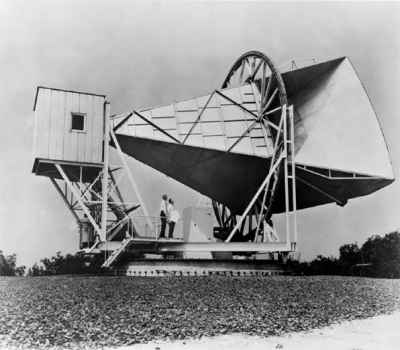Most of us understand that sound needs a medium to transmit itself, but not, at least in my case, that this includes any form of matter that constitutes our Baryonic universe. It turns out that this has monumental implications in how fundamental sound waves are in the universe we live in.
When I am talking about a ‘medium’, this applies to all matter in its many forms:
– gases, the most common of which make up our atmosphere in which sound travel at 1,235 meters per second;
– liquids, water from which we are made mostly, in which, due to its higher density, carries sound waves at 1497 m/s;
– solids of course of still higher density, for steel the most dense of solid, the speed is 5930 m/s. Another less well known form of matter is:
– plasma found in extreme invironment like stars or the early universe, but nevertheless does conduct sound waves, like other states of matter, as of the sound speed in a plasma, it must vary as in the other medium as the pressure or temperature changes I could not find a actual number, but I can assume that the speed in it is higher still to many magnitude. if you have the knowledge to figure out the formula here it is:
Baryonic matter, is anything that constitutes our visible universe, which is about 4% of its composition. The bulk of the universe is made with 23% Dark Matter, and since we do not know what it is made of, we do not know how sound waves behave in it; but since sound is so instrumental in the shape of the universe, there is no reason to think that it is not affected as well. The rest, 73%, is made up of Dark Energy, an even more puzzling phenomena but on which sound could help shed light.
All this brings me to the point I want to make: sound waves have an influence on matter of all kinds. They have an elastic or kinetic effect due to the slow rate of their frequencies, compared to the electromagnetic spectrum (light, etc.) which, due to the shortness of their frequencies only have influences at the atomic level.
What is the loudest sound ever created in this universe? Well, it has been very adequately named, as we are all calling it the “Big Bang”– just think about what it means!
The Big Boom, right? But we all have seen those science fiction movies with silent explosions, as being in space, there is no medium, so no sound. That is right, except for the fact that in the case of the Big Bang, it is sound that created the empty space. The Big Bang was infinite pressure, so sound must have traveled infinitely fast, its wave spreading to every corner of the young universe, pushing matter with its peaks and valleys in clumps and creating voids, engineering stars, galaxies and galaxy clusters, and somewhat its own demise– empty space or vacuum.
Now, sound is left vibrating, isolated in the islands of matter that dot the universe, where the original Boom still resonates from all directions. It can be measured and it has a name. It is called the “Baryon Acoustic Oscillation” or BAO. The following is a quote from an article by Richard Panek in the February 2009 issue of Sky & Telescope:
‘Early in the Universe, sound waves (“acoustic oscillations”) coursed through the primordial gas, creating peaks at intervals of 436,000 light-years. As the universe has expanded, so has the spacing between these peaks; today they are 476 million light years apart. And because galaxies tended to form on the peaks of these large waves, astronomers can measure galaxy distributions at different eras, allowing them to see how the peak spacing changed over time, and thus how fast the universe has expanded.’
This will help us measure the effect Dark Energy has on accelerating the expansion of the universe, and help predict its ultimate fate… And fittingly this all was discovered about forty five years ago with the use of a giant ear! (see picture below)
This is only the genesis of the much under-reported fundamental influence that sound plays in our existence that we shall explore in future postings, so tune in (you have no choice).
